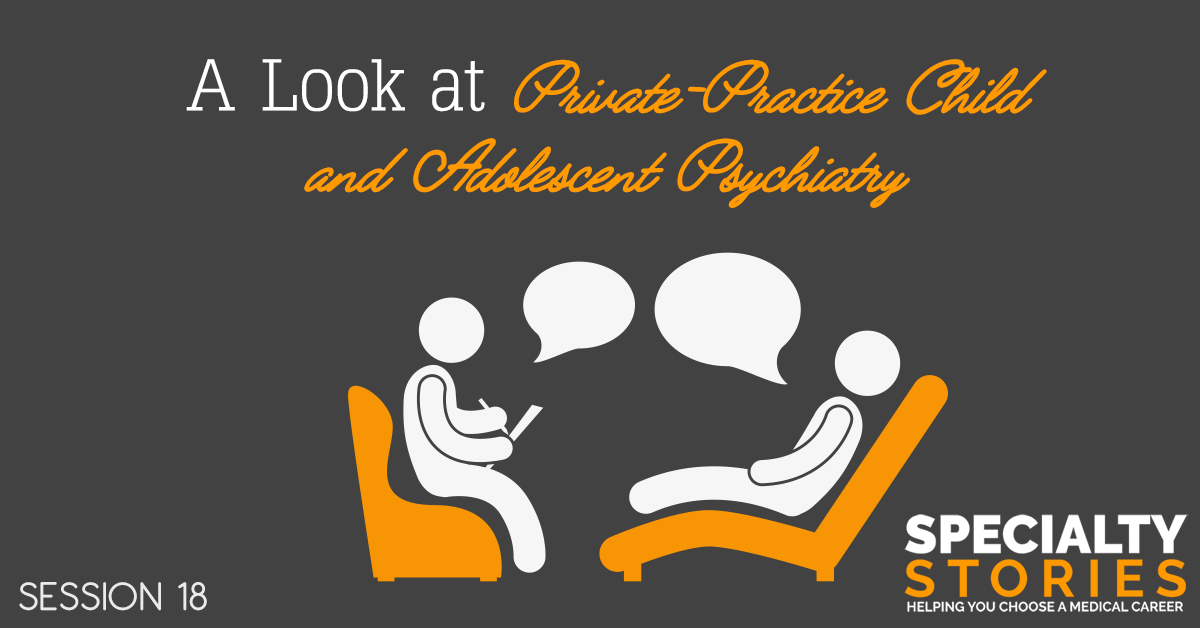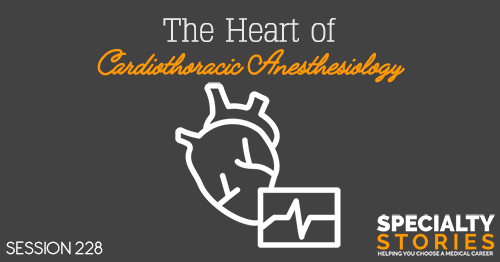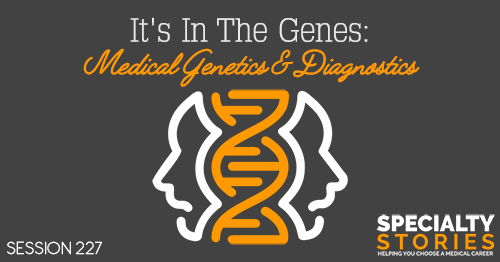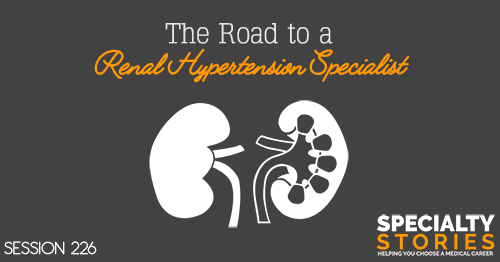Apple Podcasts | Google Podcasts

Session 18
Today’s guest is Dr. Jacqueline Hubbard, a private-practice child and adolescent Psychiatrist.
Hear her thoughts on child and adolescent psychiatry, what you can do to get involved, and if this is something you might take interest in!
Listen to this podcast episode with the player above, or keep reading for the highlights and takeaway points.
[01:55] Choosing Private-Practice Child and Adolescent Psychiatry
Jacqueline knew she wanted to go to medical school when she was a sophomore in college. Then in medical school, she narrowed down her choices. Having interest in both Pediatrics and Psychiatry, she ended up picking psychiatry and decided on the Child and Adolescent Fellowship.
When she was on Pediatrics, she felt like she was being rushed as she wanted to talk more to the patients instead of just doing the physical exam. She wanted to always have more time to sit down and get to know the patients on a deeper level.
Just like in Pediatrics, there is a lot of parent involvement in her specialty, education is one. She talks a lot about parenting skills, behavior modification, and positive reinforcement.
[Related episode: What Does Rural Pediatrics Look Like?]
[03:22] Traits of a Good Child and Adolescent Psychiatrist
Some of the traits that lead to being a good child and adolescent psychiatrist include being a good listener, empathetic, caring about the patient, and looking at the patient as a whole.
You also need to be patient, inquisitive, and making sure you’re looking at the big picture and ruling out all the other things that may not just be your specialty like vitamin deficiencies or thyroid, etc.
Some of the traits that lead to being a good child and adolescent psychiatrist include being a good listener, empathetic, caring about the patient, and looking at the patient as a whole.Click To Tweet[04:05] Child and Adolescent Psychiatry And Patient Types
After graduating, Jacqueline took a job working at a community mental health center where she ran an in-patient unit while doing some outpatient work. They had a residency program there and knowing she wanted to teach residents and medical students, she felt rushed working at the outpatient and thought she could provide better care if she worked for a private-practice model.
Consequently, she took a job doing a group private-practice and ended up leaving it because she wanted to just do it on her own and made it exactly the way she wanted or if she were the patient, it’s how she would want to go in and see someone.
As a Child and Adolescent Psychiatrist, Jacqueline treats patients with ADHD, depression, anxiety, OCD, and autism spectrum disorders, as well as those with bipolar, oppositional defiant kids, and for substance use. She also sees some adults for binge eating disorder.
Jacqueline is actually more particular about who she takes. She sees a lot of severe anxiety, OCD, depression in adults as well as some childhood issues. Kids with autism end up being adults with autism so she finds that Child and Adolescent Psychiatrists are good providers for those types of issues since they’re used to treating them.
Being Double-Board Certified as a Child Psychiatrist
Jacqueline is double-board certified, with a board certification in General Psychiatry and another board certification in Child and Adolescent Psychiatry. She tries to focus her practice mostly on Child and Adolescent Psychiatry because of the huge demand considering that there is not that many Child and Adolescent Psychiatrists.
She further explains that there are not many fellowship spots and a lot of medical students are not exposed to it as often as they could. Where she trained at University of South Florida, they only had two spots.
A general psychiatrist can technically see child and adolescent patients, basically depending on their comfort level. However, a lot of times during the general psychiatry training, they only had a month of child psychiatry and half a day in outpatient per week so you only got limited exposure to treating kids especially when you pick up autism, for example, which is something that is picked up most of the time in the pediatric populations so you don’t really get the training and experience treating those kinds of patients as well as those with ADHD.
[Related episode: Moving Forward with Student Doctor Network and Its Founder.]
[08:38] A Typical Day for a Private-Practice Child and Adolescent Psychiatrist
Jacqueline would describe her typical day as everyday being different, something she likes about her job. Because it is private practice, she can typically decide when the day starts. If she chooses to, she can see patients early and fit somebody at 7 am since she likes to come in early instead or working late. So she would start anywhere from seven to nine or ten, depending on the day and gets done by five.
For kid evaluation, she would see them for 90 minutes while for adults, she would typically give herself 75 minutes. She would also do half-hour follow ups and one-hour therapy for some patients on a more regular basis.
Jacqueline has a lot of variety as a private-practice psychiatrist. She basically doesn’t know what she’s going to get for that day especially when she’s seeing new patients, making it more interesting and fun for her.
As a private-practice psychiatrist, she doesn't know what she's going to get each day, making it more interesting and fun for her.Click To Tweet[09:43] Follow-Up, New Patient Consults, & Therapy
For a new patient, a full clinical interview is done. If it’s a child, she would sit down and talk with the family. If the parents want to talk alone and not in front of the child, she will talk with the parents and find out their concerns.
For all kids, she would try to meet with the child alone only if they’re willing to or if the parents allow her to. They will then all sit down and talk together, the parents, the patient, and herself, and then come up with a treatment plan which she has written down while talking with them so they can walk away and not try to remember things.
This is the typical procedure whether she’s recommending a specific type of therapy or exposure and response prevention, or lab work or order, medications and supplements, or other referrals for other things like occupational therapy or speech-language referral, or neuro-psych testing.
She would also try to get them to sign a release for their primary care provider. She feels that part of her job is working with an interdisciplinary team consisting of their primary care provider and any specialist. So they cover all of this and she books them for a follow-up.
How Do the Appointments Go in Private-Practice Psychiatry?
For follow-up appointments, they will go over the treatment plan again and see what’s been done in between appointments, if they’ve started working with a therapist, an occupational therapist or speech therapist. They will talk about their medications and make sure they’re not having side effects and find out what’s been going on in between the appointments, how school is going, how family life is going. She will also refill their medications.
For therapy, Jacqueline is trained in cognitive behavior therapy, which is a therapy approved for anxiety and depression. She is also trained in exposure and response prevention, an excellent therapy for OCD and social anxiety. It involves doing exposures for kids and adults, where they are put in an anxiety-causing situation starting at the bottom of the hierarchy. This lasts for about an hour.
Sometimes, they will use workbooks tailored for young kids, for example. She basically sees therapy patients on a more regular basis, for one hour weekly or every other week. She loves getting to know the patients at a different level as well as the families as you’re able to see them more often.
Jacqueline also has patients that will see an outside therapist like a counselor or social worker, at which she will have the patients sign a release so they can work together and they’ll see her more for medications and managing the treatment team while they see the therapist for therapy.
[14:20] Private-Practice Child and Adolescent Psychiatrist Lifestyle
The extent to which psychiatrists take call depends on the state you’re in or if you take insurance. As for her, she does not directly accept insurance but she’s an out-of-network psychiatrist, which means patients can see her and they pay out of pocket to see them and they can request reimbursement from their insurance. Insurances require that you have some type of call system in place.
Her policy as an out-of-network psychiatry states that if in case of emergency, they can call 911 or go to an ER. With her practice, she does have a secure portal where patients can send in a secure email which they can do anytime so she gets messages which she encourages.
She also gets calls after hours that go to voicemail, but if it’s an urgent voicemail, they can press the number four and she’d be alerted that’s it’s an urgent voice message. However, during their first appointment, Jacqueline actually explains to her patients that she doesn’t have an on-call service or emergency service after hours.
Jacqueline says she has definitely a good work-life balance as a private-practice psychiatrist.Click To TweetBeing an out-of-network provider is common in her area, both geographically and specialty-wise, because it’s easier to run the practice that way and they won’t have to hire any staff so the overhead expense is a lot lower. Not having any office staff, Jacqueline basically does everything from the patient’s first phone call to taking their payment.
Being her own boss, Jacqueline can say she has definitely a good work-life balance. She enjoys the flexibility of it, blocking her schedule whenever she chooses for her personal or family life.
[17:10] Residency, Fellowship, and Matching for Child Psychiatry
After medical school, the General Psychiatry residency program takes four years and the Child and Adolescent Fellowship Program is an additional two years. However, most programs allow you to enter into the two-year fellowship after three years of the General Psychiatry residency, cutting out a year. Overall, it’s a total of five years after medical school.
The fourth year in residency is usually a lot of electives so you’re doing different rotations and you basically have gotten everything required during the first three years. Moreover, they know you’re going to be doing inpatient and outpatient work and consultation work in doing the fellowship.
How Competitive Is Psychiatry Residency?
In terms of the competitiveness of residency matching, it varies year to year and according to where you’re going. However, psychiatry is not as competitive as plastic surgery or dermatology.
Still, Jacqueline found matching for fellowship to be very competitive with only two spots available and there were four of them in their class of eight that wanted to go to their fellowship program and they only applied to their program so obviously only half of them got it.
In order to stand out for Fellowship, get to know the Child Faculty if you’re considering going into Child and Adolescent Psychiatry Fellowship. During her second year, they had electives and they applied during third year so her Child and Adolescent rotation was by the end of second year for which she wasn’t sure of because they haven’t had any exposure to it.
So she scheduled her electives earlier in the year for Child and Adolescent Psychiatry to get to know the Child and Adolescent faculty in order to make sure and confirm that she really wanted to do it.
If you show an interest in it, it’s important to get to know the faculty so that you can get great recommendation letters from the faculty.
Jacqueline also encourages joining AACAP (American Academy of Child and Adolescent Psychiatrists), a national organization that accepts medical students for free. They hold a yearly conference where medical students can attend and residents can also participate in at discounted rates.
[Related episode: What Does the Psychiatry Match Data Look Like?]
[21:06] MDs vs DOs in Child Psychiatry
Jacqueline does not see any bias towards DO’s as a psychiatrist. In fact, the other Fellow she graduated with was a DO. She also thinks a lot of DO’s gravitate towards Psychiatry probably because of their training where they take a holistic approach to taking cases.
[Related episode: MD vs DO: What Are the Differences (and Similarities)?]
[21:53] Other Subspecialty Opportunities for Private-Practice Child Psychiatrists
As a Child and Adolescent Psychiatrist, you can pursue more fellowships such as Forensic Fellowship and focus on the juvenile justice system or an Addiction Fellowship where you add an additional year.
You may also choose a diagnosis that you really enjoy treating and just focus your practice on that. There are autism private-practice psychiatrists where they treat mainly autism.
As a private-practice psychiatrist, you can always choose a diagnosis that you really enjoy treating and just focus your practice on that.Click To Tweet[23:00] Working with Primary Care Doctors and Other Specialties
Jacqueline believes it is important for everyone to work together. She tries to make it easy for pediatricians or IM’s for them to work together. She would coordinate with them with regards to the diagnosis along with the lab work.
A lot of times, primary care doctors order lab work before the psychiatrists do, so if they’re referring to a specific psychiatrist and the patient agrees in the office, Jacqueline thinks it would be great to have them sign a release through a little form sent over indicating the patient referral and lab work.
If they’re concerned about depression, it’s important for them to be thinking of psychiatric diagnosis and screen for safety concerns, and if there is any, it’s definitely good to have a referral relationship with the psychiatrist they trust where they can call them and run cases by them.
Specialties she works the closest with are therapists, GI doctor for stomach pains, neurologists for headaches, but mostly primary care from a medical standpoint as well Endocrinologists and OB/GYNEs.
What she wished she knew before going into her current specialty is to have more exposure to the different areas one could practice. If she had done so, she would have explored the justice system and community mental health. She thinks it’s important to be aware that where you do your training can be different elsewhere as well as to seek out mentors outside of where you train.
[27:15] Her Most and Least Liked Things about Being a Private-Practice Child Psychiatrist
Jacqueline thinks it’s a great privilege to work with families and getting to know the patients and working with families and how rewarding and exciting it is to see patients get better. When you treat kids, you really get to see kids make a lot of strides and you can make a huge difference in the trajectory of their lives in general.
What she likes the least about her job is the administrative side of things compounded by the fact that she is in private practice.
In terms of the future of her specialty, it’s important to stay on top of what’s happening in their field with all the cool things coming out like telepsychiatry where you get to see patients remotely.
[29:22] Opportunities Outside of Medicine for a Private-Practice Child Psychiatrist
There are opportunities to get involved with the education system especially in educating parents, as well as do talks in the community for mental health issues in general like the importance of sleep.
You may also work with the school systems to educate, not only parents but also teachers and guidance counselors on mental health issues and advocacy issues children face.
[30:18] Final Words of Wisdom
Jacqueline says that if she had to do it all over again, she would have definitely chosen the same specialty. Lastly, Jacqueline encourages students interested in this specialty to look into it and to reach out to a Child and Adolescent Psychiatrist and learn more about it.
There is a demand for this specialty, so you will always have a job, not to mention the huge difference you can make in the lives of kids and young adults. Learn more about it to make sure you want to do it!
There is a demand in child psychiatry, so you will always have a job, not to mention the huge difference you can make in the lives of kids and young adults.Click To TweetLinks and Other Resources
- AACAP (American Academy of Child and Adolescent Psychiatrists)
- Related episode: The Nontraditional Medical Student: A Different Path to Med School.
- Related episode: Important Details About (Almost) Every Medical Specialty.
- Need MCAT Prep? Save on tutoring, classes, and full-length practice tests by using promo code “MSHQ” at Blueprint MCAT (formerly Next Step Test Prep)!
SEARCH SITE
LISTEN FOR FREE











